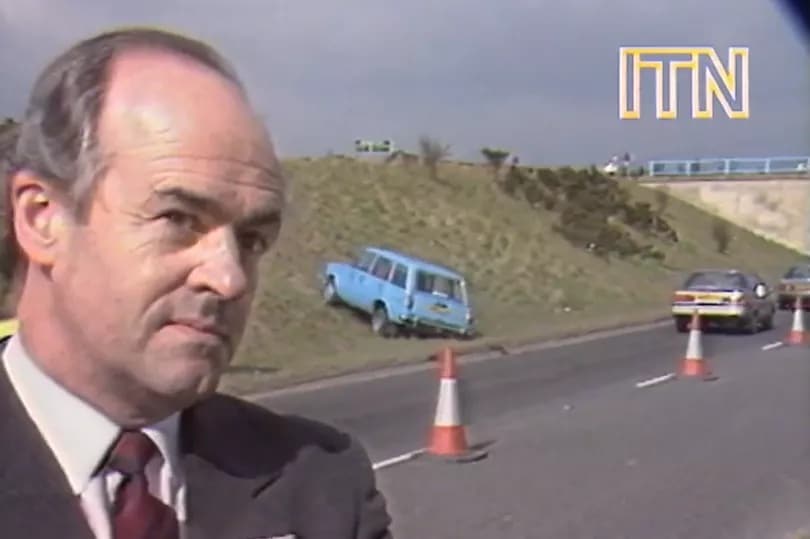

This is perhaps one of the biggest PR disasters of all time caught on camera. It all started with a bold claim.
“I will not accept that it’s a highly dangerous road,” declared a Department of Transport official in 1988, standing proudly beside a newly installed four-and-a-half-mile safety barrier on the A19 dual carriageway in England. The event was designed to showcase the road’s improved safety.
In a twist that could only be described as “spectacularly unfortunate,” the universe decided to chime in with its own commentary. As the official extolled the virtues of this now-safe haven, a vehicle, seemingly unimpressed by the new barrier, pirouetted across the road like a startled ballerina. And then, just to ensure everyone got the joke, another car decided to take an unscheduled detour onto the grassy median.
A journalist couldn’t resist pointing out the irony of the situation. It was a publicity event gone wrong, a real-life comedy sketch unfolding before their very eyes. The “safest road in Britain,” it seemed, had a slightly different definition of “safe” than the rest of us.
The scene probably resembled something out of a classic British sitcom: the bewildered official, the chaotic traffic, and a sheep casually strolling by, completely unfazed by the unfolding drama. It’s the kind of story you tell at parties, shaking your head and chuckling at the sheer absurdity of it all.
But the A19 incident is just one of many cautionary tales. PR disasters come in many forms, from tone-deaf advertising to catastrophic corporate responses.
Take Pepsi’s Kendall Jenner Ad in 2017. What was intended as a message of unity and peace quickly became a symbol of corporate cluelessness.
The commercial, featuring Jenner resolving a protest by handing a police officer a can of soda, was widely condemned for trivializing serious social justice movements. It was a massive misjudgment of cultural sensitivity, proving that good intentions (or at least, marketed good intentions) can still lead to spectacular backfire.
Then there’s the more insidious kind of PR disaster, born from deliberate deception. The Volkswagen Emissions Scandal, or “Dieselgate,” of 2015 saw the automotive giant caught red-handed.
Volkswagen had installed “defeat devices” in millions of diesel cars to cheat on emissions tests, lying to consumers and regulators alike. The fallout included billions in fines and a severe blow to the brand’s once-sterling reputation for German engineering and trustworthiness. This wasn’t an accidental live gaffe, but the slow, painful unraveling of a massive betrayal of public trust.
